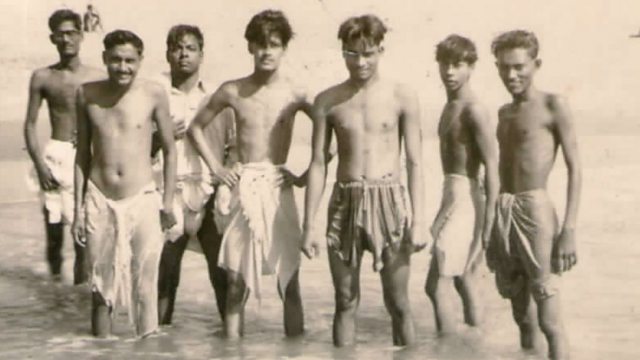Jan 13th, 2015, 22:20
In the early 1960s, Kolkata was in the grip of major food shortages, an
insecure and incompetent government and disillusionment amongst the
young intelligentsia with the post-colonial political establishment. It
gave rise to the so-called 'Hungry Generation'
or 'Beat Generation', a band of irreverent and articulate angry young
men (and woman) who cocked a snook at the establishment. Alan Ginsberg (1926 - 1997) was an active supporter.

Source
India's Beats: The Hungry Generation
One of the presenters is Utpal Kumar Basu's son, Feroz Basu,
The other presenters are Ipshita Chanda and Deborah Baker, with Samir and Malay Roychoudhury's comments.
For those that wish to listen, it's available as a free downloadable MP3 podcast from the BBC link below.
India's Beats - The Hungry Generation

Source
Quote:
SourceAn example, transcribed by me, below.The poem that tipped the balance against the movement was "Stark Electric Jesus", by Malay Roychoudhury. The authorities never got the meaning of the words The 'Hungryalists', (as they termed themselves,) were accused of obscenity and conspiracy against the state, and many lost their jobs and some were imprisoned for a while.
"So", by Samir Roychoudhury
O Sir, nobody uses the Jadhavpur Subway for a road crossing.
During the night, the aristocrat lunatics sleep there
A passenger queried, "Is the taxi-meter okay?"
I delivered a counter, "Is the country okay?"
India's Beats: The Hungry Generation
Quote:
According to
Malay Roychoudhury, even fellow movement poets, Utpal Kumar Basu,
Saileswar Ghosh, Subhash Ghosh and Shakti Chattopadhyay testified
against him at his trial.One of the presenters is Utpal Kumar Basu's son, Feroz Basu,
The other presenters are Ipshita Chanda and Deborah Baker, with Samir and Malay Roychoudhury's comments.
For those that wish to listen, it's available as a free downloadable MP3 podcast from the BBC link below.
India's Beats - The Hungry Generation
Quote:
কোন মন্তব্য নেই:
একটি মন্তব্য পোস্ট করুন